24 Most Popular Wedding Flowers and their Meanings


Choosing wedding flowers can be tricky. If you are struggling to choose your flowers, it may be worth considering what the blooms mean.
To help you decide, we’ve picked out some popular wedding flowers and explained their meaning.
Rose
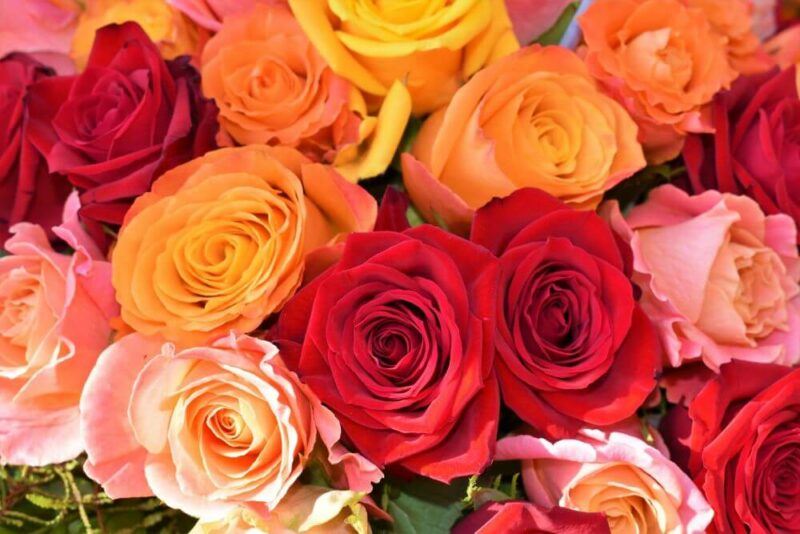
The rose is a traditional wedding flower, so it couldn’t be left off this list!
Roses symbolise love, yet depending on their colour, other meanings come in too. Red roses symbolise love and desire, whereas white roses are purity and innocence.
Calla Lily
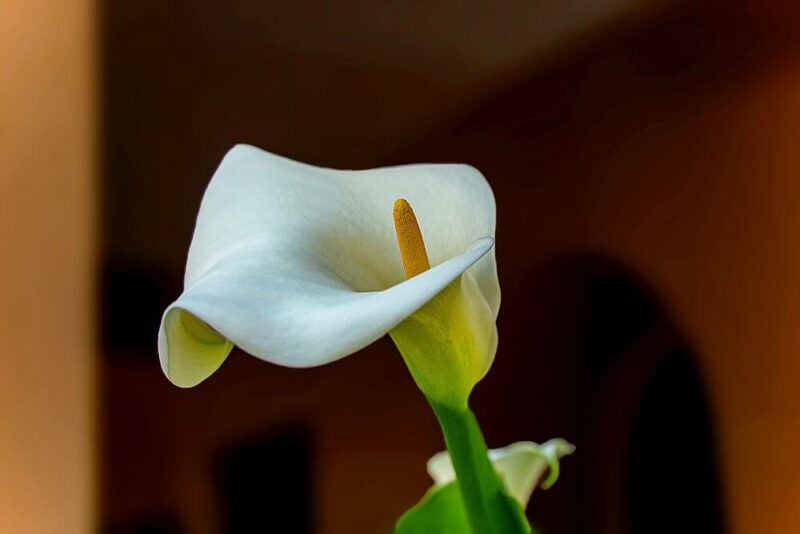
Calla lilies came from Africa and are usually in season for spring or summer weddings.
Calla lilies have a mild fragrance and represent beauty. Bouquets made of only calla lilies are stunning, but they can be a sturdy support for other bouquets too.
Tulip
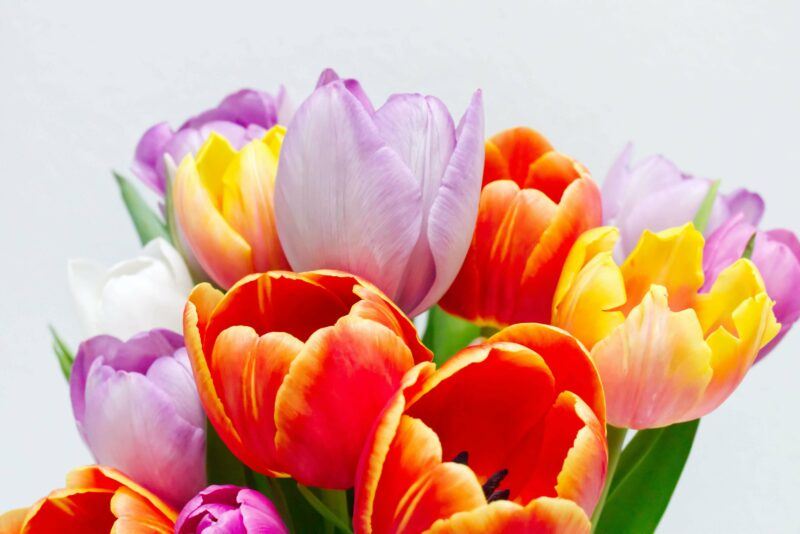
Tulips are in season in spring, and so find their way into bouquets and venue décor up and down the country.
Like roses, tulips come in bold and beautiful colours, each with a different meaning. Red tulips symbolise a declaration of love that is perfect for your altar décor, and yellow mean sunshine.
Hydrangea
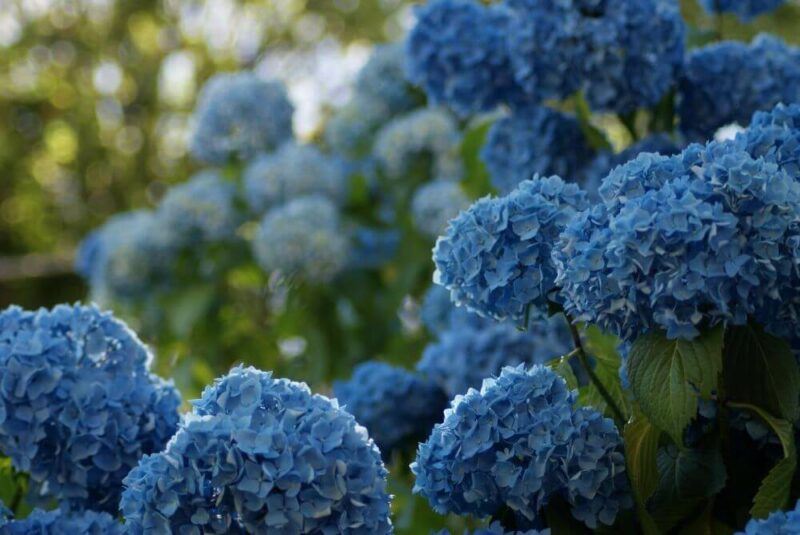
Hydrangeas have large clusters of delicate petals and are a great way to add bulk to a bouquet.
The hydrangea can express gratitude, and so is ideal for bridesmaid bouquets.
Sweet Peas
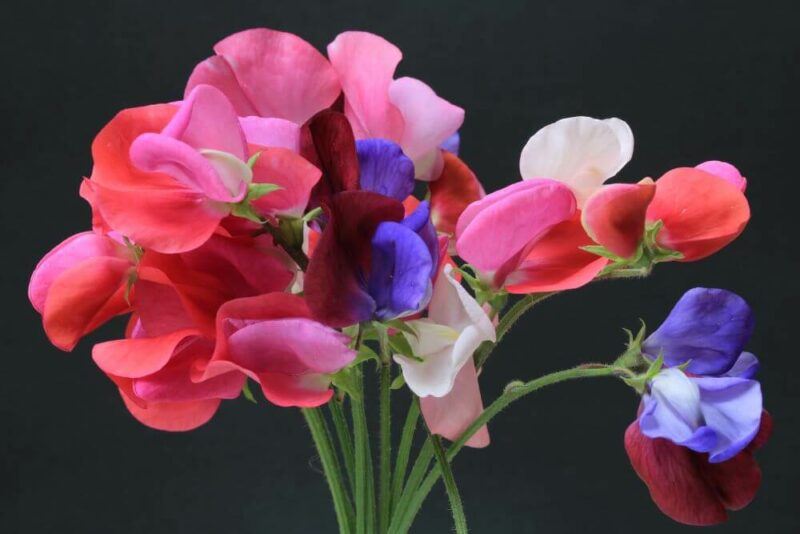
The sweet pea has a homey vibe, thanks to its rich scent and a range of tones to match with any wedding colour scheme.
This flower is a firm favourite and will be right at home in the bouquet of a bride planning a country wedding.
Peony
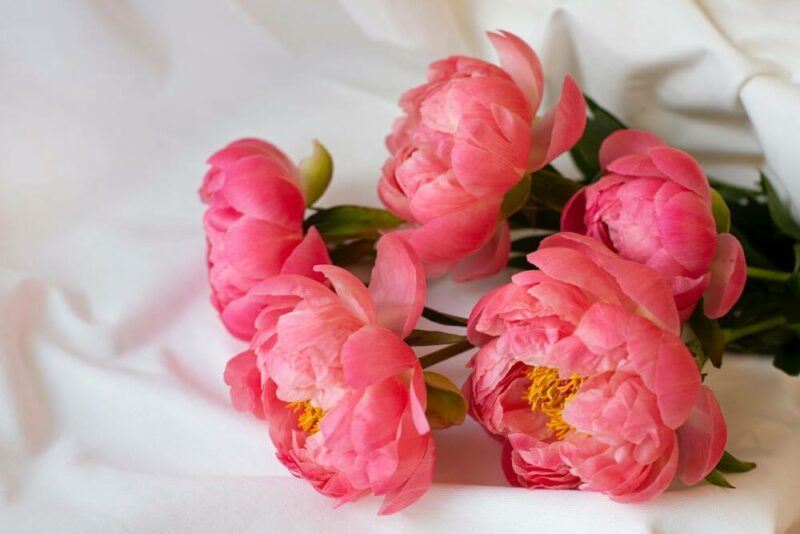
Legend has it that Paeon, the Greek physician of the Gods, used a peony root to heal Pluto. Jealousy led to an attempt on Paeon’s life, and to save him, Pluto transformed him into a peony. This legend has led to the peony having a meaning of compassion.
Carnation
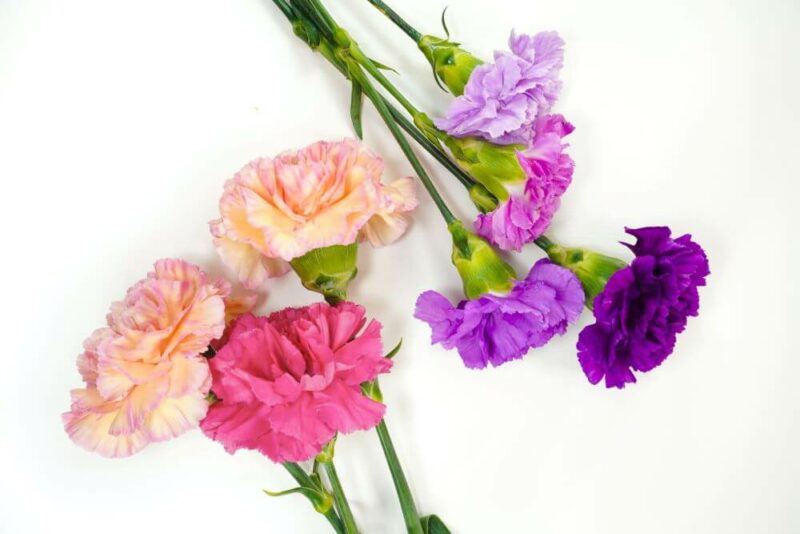
Carnations fell out of favour, but they are making a comeback again in the bouquets of brides.
The humble carnation symbolises both love and pride. But avoid striped carnations as they can mean refusal!
Chrysanthemum
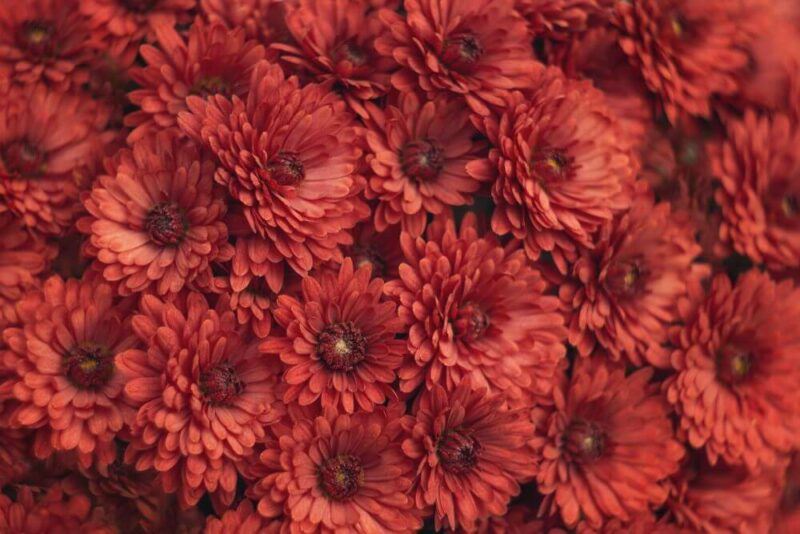
Chrysanthemums represent optimism, joy, and a long life. These very meanings are what makes it a great addition to a bridal bouquet!
An added benefit of the chrysanthemum is that they are affordable and in great supply all year round.
Anemone
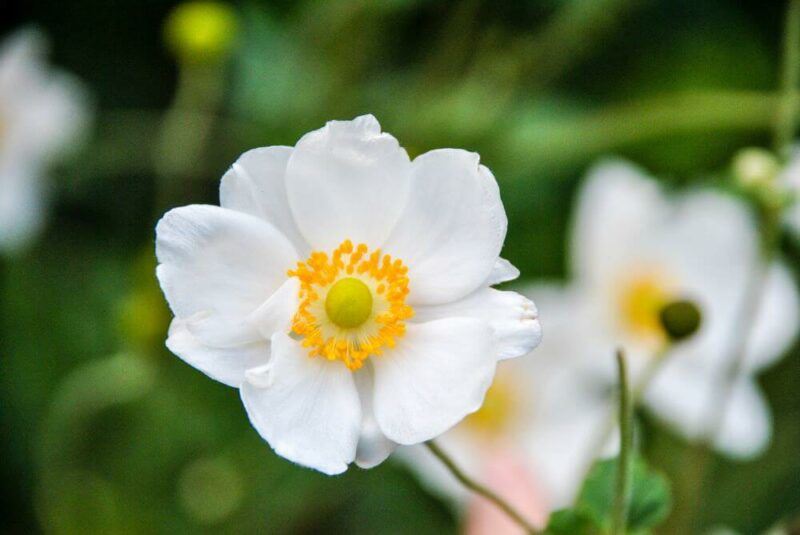
The anemone is one of those flowers that can fit into a range of colour schemes. These flowers come in a range of shades, including purples, pinks, reds, and ivory.
Anemone comes from the Greek word for “windflower” and symbolises anticipation.
Daffodil
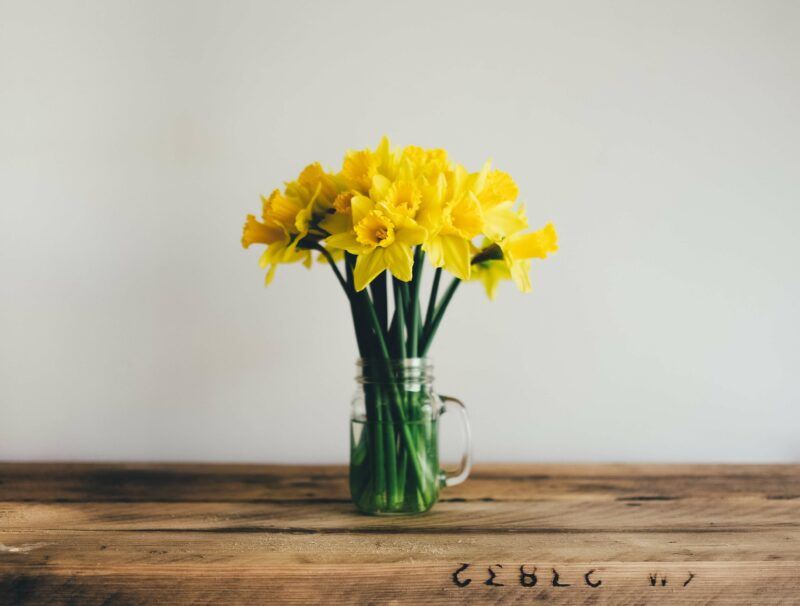
Daffodils are vibrant and tell a tale of the coming of spring.
Beyond this, daffodils symbolise chivalry. A single daffodil means unrequited love, making it a great buttonhole for the groom.
Baby’s Breath
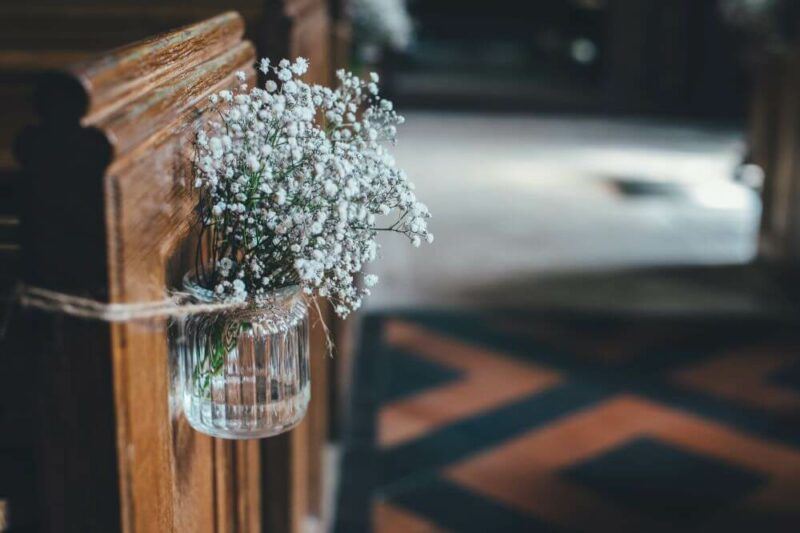
The cloud-like petals of baby’s breath mean this bloom is a popular filler for bouquets and decor. The tiny white flowers can be used on their own in delicate flower crowns for your flower girls.
Baby’s breath symbolises innocence, and they are inexpensive all year round.
Delphinium
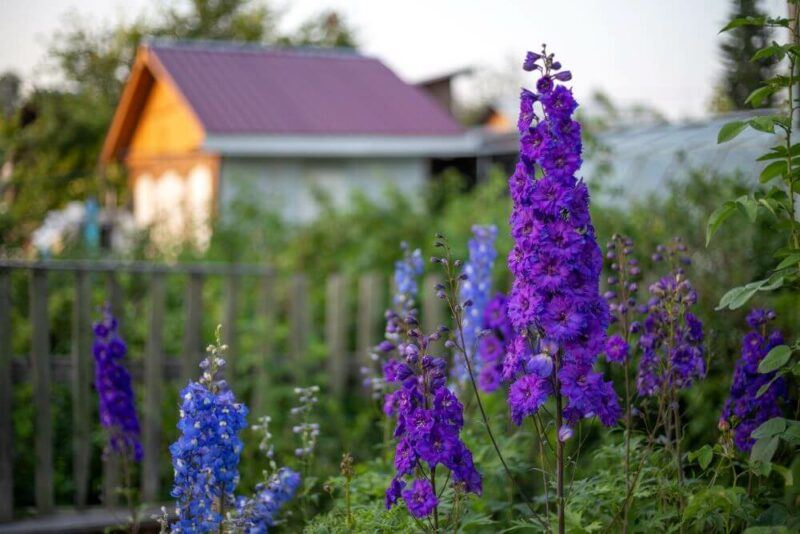
Delphinium comes from the Greek word “delphis”, translating as dolphin. If you pluck a single flower from the tallest part of the plant, it looks like a dolphin leaping out.
These blooms have a subtle scent, and the purple colour looks at home in summer centrepieces.
Heather
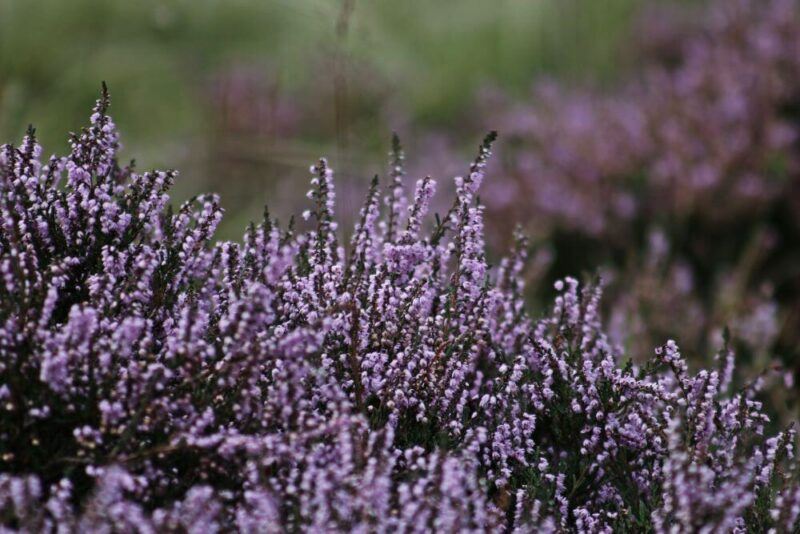
Heather flowers symbolise good luck and protection. Queen Victoria popularised the heather as meaning good luck in England. As a result, it is common to include a sprig of white heather in a bride’s bouquet for luck.
Anthurium
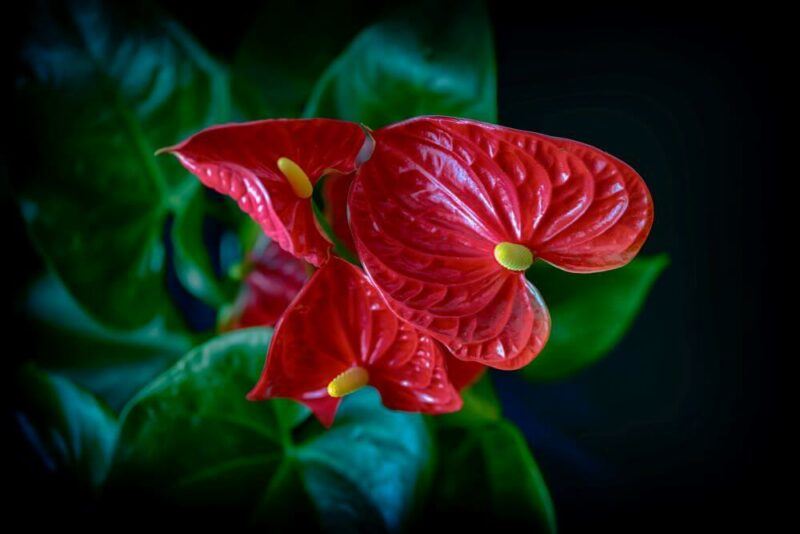
Anthuriums symbolise hospitality, abundance, and happiness, which are perfect for your wedding day! Their delicate heart shape will fit right in with your bouquet.
These flowers come in vibrant shades, or, for a more subtle approach, you can opt for a delicate green bloom.
Cornflower
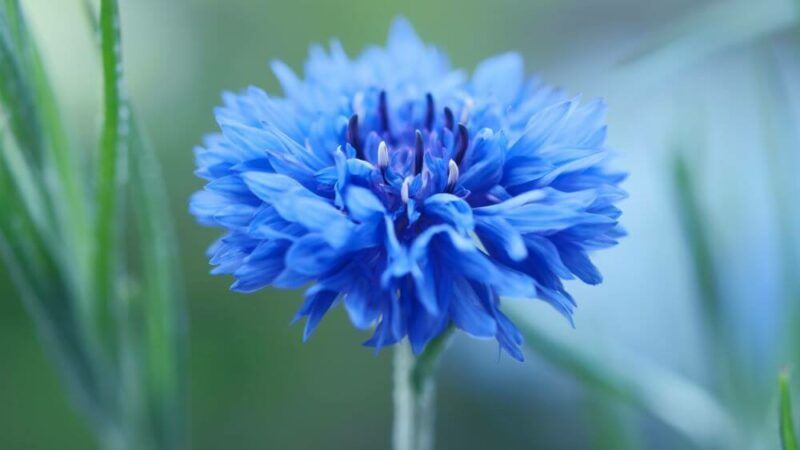
Cornflowers symbolise prosperity and friendship. Cornflowers usually have a gorgeous blue hue, but they are also available in white or pink.
The subtle tones make them a great addition to bridal or bridesmaid bouquets.
Dahlia
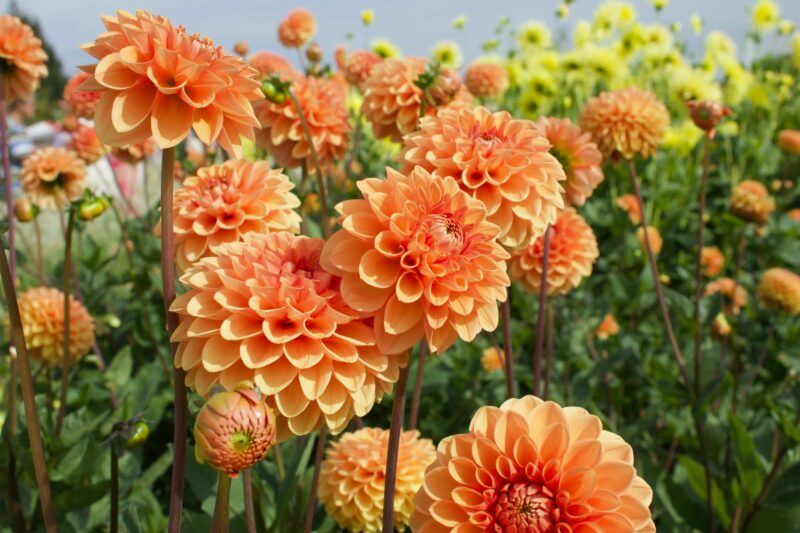
Dahlias are a perfect wedding flower. These blooms mean commitment and an ever-lasting bond, and their bold bloom is elegant too.
When they are in season, you cannot go wrong with adding dahlias to your bouquet.
Magnolia
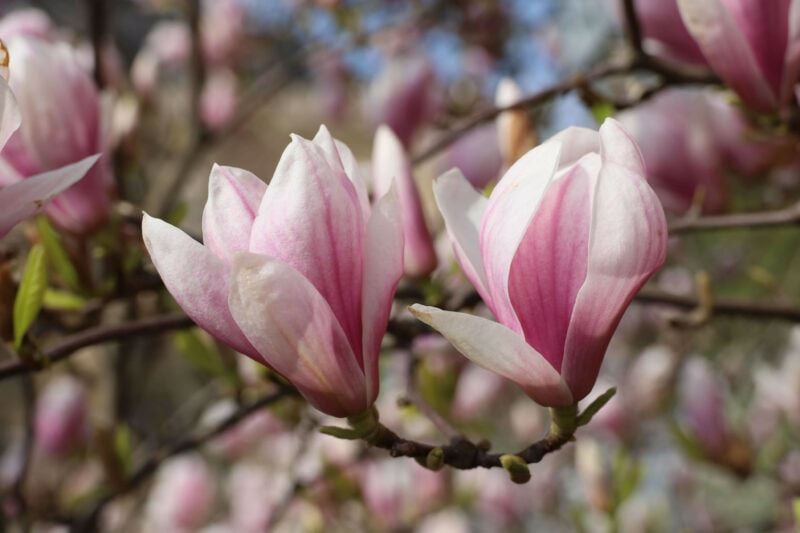
In Chinese culture, the magnolia tree symbolises purity and nobility. The blooms have been used for healing and are thought to have been around for 20 million years!
Today, the flower symbolises perseverance, dignity, and a love of nature.
Sunflower
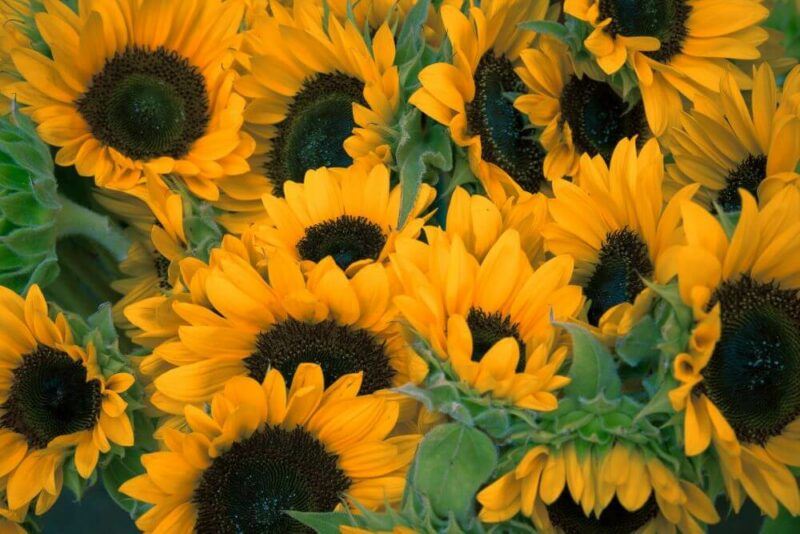
Sunflowers are a big, bold, and vibrant choice often used as a focal flower in a summer bouquet. The sunflower represents purity, adoration, and dedicated love.
The sunflower looks even better when paired with the delicate blooms of baby’s breath or daisies.
Freesia
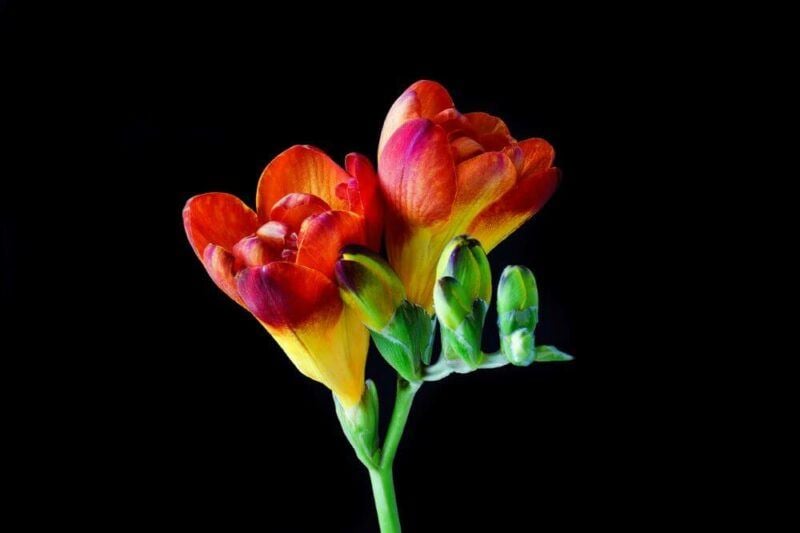
The delicate freesia represents innocence and thoughtfulness.
The freesia can add a dash of colour to a bouquet, both for brides and bridesmaids. The delicate blooms are available in yellow, ivory, purple, and a stunning burnt orange.
Daisy
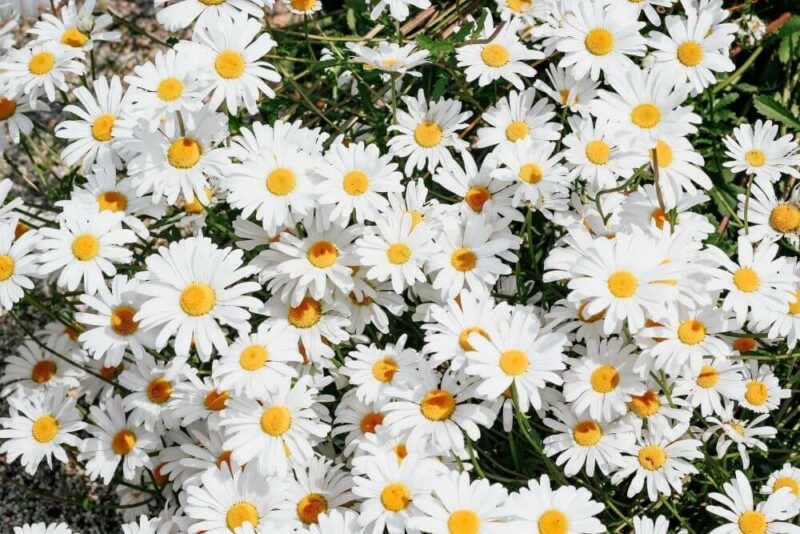
Daisies mean innocence and purity. We all remember playing outside when we were young and making daisy chains. The happy memories make them a great addition to a bouquet!
Gerbera
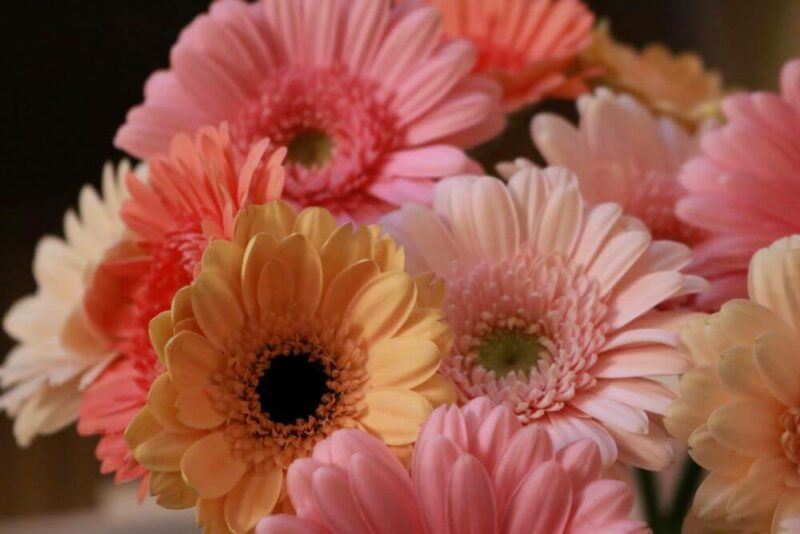
The gerbera is a member of the daisy family, but it tends to be much bolder and brighter than its more delicate cousin.
The gerbera has rows of overlapping petals and are often found in bold and beautiful colours. Their colours and a name that means cheerfulness make this is a popular bouquet choice.
Lilac
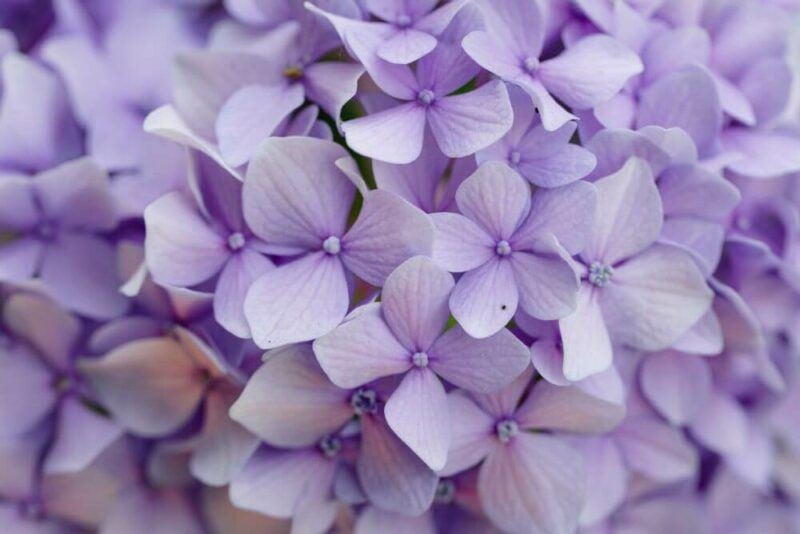
If your partner is your childhood sweetheart, lilac could be a great to your bridal bouquet. The delicate blooms of lilac come in purple and white, and they symbolise first love.
Local lilacs can be found in spring, but brides can usually get access to imported lilacs all year round.
Orchid
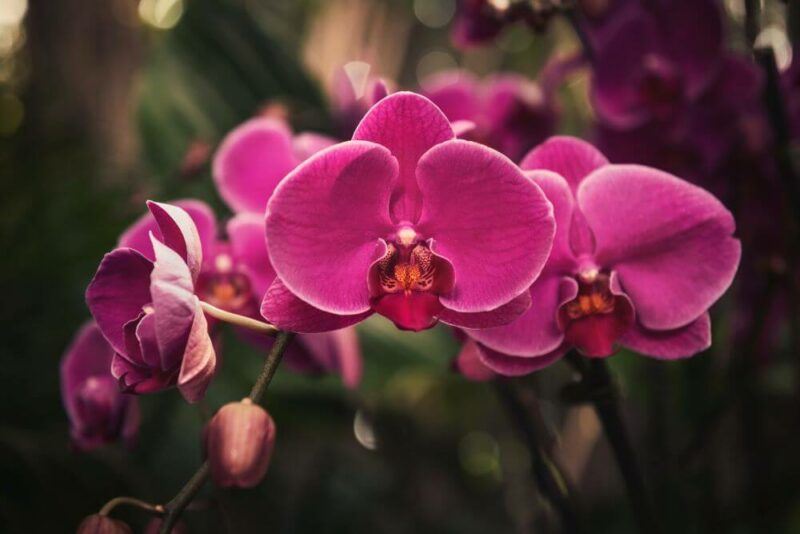
The exotic beauty of the orchid makes it an in-demand addition to a bouquet. But, unless you are careful with your seasons, it can end up being quite expensive.
The orchid represents thoughtfulness and charm, adding a dramatic touch to your bouquet.
Zinnia
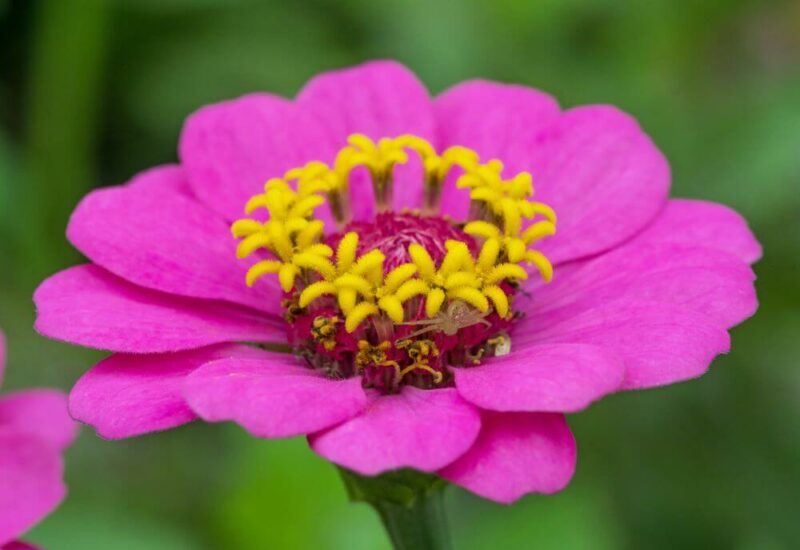
Gardeners love the zinnia because it attracts butterflies. For couples, the gorgeous colours, and meaning of lasting affection is enough to seal the deal.
Opt for a bold touch by adding a bright orange steam to a centrepiece or add a statement bloom to a bouquet.
Happy planning!
Check out some of our other top tips to help you plan your wedding stress-free.

